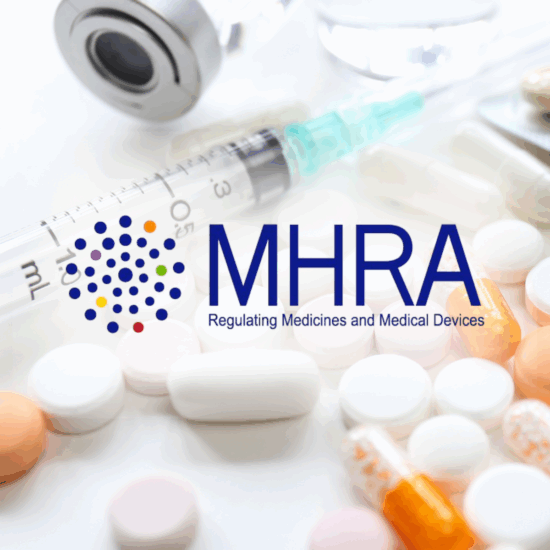Whitepaper: Addressing AMR: Regulatory Challenges and Opportunities in Non-Traditional Antimicrobial Development
Published May 01, 2025
Published 02nd December 2024

The EMA is introducing a new fee structure set to take effect on January 1, 2025, that will impact both human (discussed in this article) and veterinary medicines. The implementation of the EU Regulation 2024/568 will create a simplified fee system which will follow a workload-based fee model, calculated per procedure and based on actual costs incurred across 29 EEA Member States and EMA. Major changes in fees will impact the following procedures: scientific advice, initial Marketing Authorisation Application (MAA), extension of marketing authorisation, certification of a medicinal products (Plasma Master Files and Vaccine Antigen Master Files), re-examination of procedures, variations, referrals, parallel distribution, pre-submission activities, inspections and consultation on medical devices. Although costs are now included for orphan and paediatric applications, these are for transparency only, and are not payable by sponsors.
As previously, there are fee reductions granted to micro, small and medium sized enterprises (SMEs) for many of the procedures, but important to note that the SME status needs to be valid at the time of submission. Fee reductions could also apply depending on the status of the medicinal product (e.g. orphan, for paediatric use, advanced medicinal products, products for crisis preparedness and management).
This article will provide some further details on some of the aforementioned changes under the new fee regulation.
Under the new fee regulation, EMA’s scientific advice will have 3 fee levels (€51 900, €73 900 and €98 400) as opposed to 6 basic levels occurring previously, to address different types of advice between quality, non-clinical, clinical development, qualification, bioequivalence studies and novel methodologies. The terms of payment have also changed, with the payment to be made after validation of the procedure has been completed. The same fee will now apply for initial and follow up advice requests.
For SME’s it is important to take into account the SME status; previously it was required to be valid at the start of the scientific advice procedure however now it needs to be valid at the time of submission or the incentives do not apply.
| Current | From 1st January 2025 |
|---|---|
| 6 basic fee levels | 3 fee levels |
| Separate fee for initial and follow up advice | Same fees for initial and follow up advice |
| SME status needs to be valid at time of SA procedure starts | SME status needs to be valid at the time of submission |
| Payment made after scientific advice | Payment made after validation complete and before the start of procedure |
A pre-submission fee of €8 600 has been introduced for each eligibility request for centralised procedure submitted with a notification to submit an application for an MAA. If an eligibility request with a notification of intention to submit an application for a MAA has not been submitted, the fee shall apply in addition to the applicable authorisation fee. There will be additional charges of €4 200 incurred for delays based on the initial MAA proposed date.
Previously, there were 3 levels of basic MAA fees but from the 1st January 2025 there will be 9 different fee levels for the application of the initial MAA, dependent on the legal basis of the MAA, with no separate fees for additional strength or pharmaceutical form and presentation. Fee reductions may apply depending on the status of the product (e.g. orphan, paediatric use) and a fee deferral in the case of an SME status.
The new fee structure also includes a set re-examination fee at 30% of the initial MAA cost (note that there is no SME reduction for re-examination of procedures).
Under the new regulation, there will be 3 levels of fees and each fee will be applicable to a single pharmaceutical form associated with a single associated strength. The fee levels will depend on whether the line extension is based on just quality data or including clinical/nonclinical data or the legal basis of the application (e.g. generic/hybrid/biosimilar or patent grounds). The most expensive fee level (€ 196 800) will be associated with extension of an MAA where clinical and/or nonclinical data will be provided. As with the initial MAA, fee reductions may apply.
Variation fees are now organised across 2 levels, covering Type II extension of indication variation charged at €163 200 and other Type II’s charged at €22 000. There are no fees for Type I, minor variations , as they will now be included as part of the annual fee. Provisions will apply in the case of work-sharing for major variations.
The inspection fees will differ depending on if the inspection is within or outside the European Union. There will be the introduction of cancellation fees when a scheduled inspection is cancelled.
The administrative fee, set at €4 400, will be charged under specific conditions if an applicant withdraws an application more than 24 hours after submission but before the validation period begins. The major impacted procedures are scientific advice, initial application of MAA, extension of MAA, scientific opinions, PMF, VAMF and variations. The fee also applies for applications which have been rejected following the conclusion of the administrative validation. The new administrative penalties are waived for SMEs.
The same fee of €4 400 will be charged for applications which are claiming to meet the requirements for a fee reduction but upon inspection fail to demonstrate that they are entitled to a fee reduction.
Alongside the major changes highlighted above, there will also be minor changes to annual fees, Periodic Safety Update Reports (PSUR) and Post-Authorisation Safety Studies (PASS) and the annual pharmacovigilance fee which are important to note. The changes in the annual fees are provided below.
The annual fees set by the EMA will still follow 3 different levels however the fee amounts will change, as per the table below. Additionally the annual pharmacovigilance fees for medicinal products will now have a charge of €230 per chargeable unit.
| Procedure impacted | New fee as part of EU Regulation 2024/568 |
|---|---|
| Annual Fee (Article 10(1), 10(3), 10c) [generic, hybrid, informed consent application] | €60 300 |
| Annual Fee (Article 10(4)) [Similar Biologic application] | €18 100 |
| Annual Fee (other applications) | €232 400 |
To conclude, the new fee regulation EU 2024/568 will have a significant impact on the majority of procedures, with a considerable increase in requested fees, and therefore Sponsors should carefully consider this for their budget forecasting moving forward.
The other major change is the introduction of the administration fee impacting some procedures as listed above (e.g. Scientific Advice, initial MAA), which will be applied when validation is failed, withdrawn or delayed in an untimely fashion, meaning that planning and ensuring high quality submissions will be paramount to avoid those penalties.
If you need support to accelerate your submissions, get in touch. DLRC has extensive experience in successfully supporting regulatory applications from pre-submission interactions through to product approval. Contact DLRC at hello@dlrcgroup.com to find out how our experienced team of regulatory professionals are able to assist you with your regulatory applications.

Published May 01, 2025

Published Apr 25, 2025

Published Apr 11, 2025

Published Mar 27, 2025

Published Mar 25, 2025

Published Mar 06, 2025

Published Feb 26, 2025

Published Feb 25, 2025

Published Feb 03, 2025